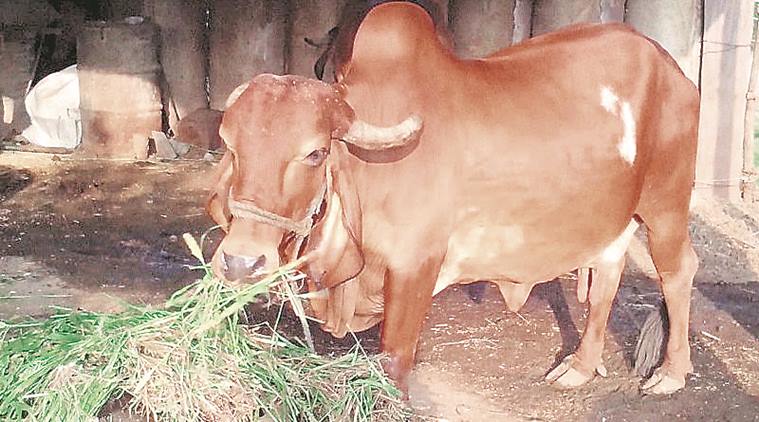A six-member Punjab government delegation, including two dairy farmers, will leave for Brazil for a ten-day tour to study how Indian indigenous cow breeds are being better managed there.
A six-member Punjab government delegation, including two dairy farmers, will leave for Brazil on April 2 for a ten-day tour to study how Indian indigenous cow breeds are being better managed there.
Read More.........
Read More.........
The tour is being undertaken under the directions of Chief Minister Parkash Singh Badal who has been focusing on improvement and promotion of indigenous cow breeds in Punjab for some time now.
The focus of the tour will be Indian indigenous breeds, including Gir, Tharpakar and Kankrej, whose germplasm were imported by Brazil from India. Brazil now claims to have achieved higher milk yield and better animal health after working for decades on the germplasm taken from India.
Gir is from Gujarat and Tharparkar and Kankrej are indigenous breeds from Gujarat and Rajasthan desert pockets.
The delegation will also study how Brazil manages unwanted animals and produces healthier cattle using selective breeding. The quality and level of nutrition being fed to Indian indigenous breeds there, leading to higher milk production and better reproduction, will be studied. Their record keeping system will also be analysed.
Speaking to The Indian Express, H S Sandha, director, animal husbandry, said, “Brazil took germplasm of our indigenous breeds, Gir, Tharparkar and Kankrej, decades ago. Now, they claim of having healthier animals and higher milk yield. Their best Gir cows are reportedly producing at least double the milk than ours here. We want to study the difference in cattle management between the two countries.”
“Management of unwanted animals is a big issue here. Reportedly, they allow cow slaughtering which cannot be allowed here. So, an alternate process has to be studied. They also practise selective breeding. Only healthy and high milk yielding animals are allowed to reproduce. Better nutrition and high quality diet has improved their breeds. All these points will be studied,” said Inderjeet Singh, director, dairy development, Punjab.
However, not a single breeding expert has been included in the delegation from Guru Angad Dev Veterinary and Animal Sciences University (GADVASU), the state’s only vet varsity, even though breeding is the key area of study. The four officials who will be visiting Brazil include M S Sandhu, IAS, additional chief secretary animal husbandry, Inderjeet Singh, director, dairy development, Punjab, H S Sandha, director, animal husbandry, Punjab, and P K Uppal, advisor to CM on animal husbandry.
A S Nanda, vice-chancellor GADVASU, when contacted, said, “If a delegation is going to study specific breeds in Brazil, animal breeding would be the key focus area. Only breeding experts can provide technical knowledge and guidance on this, such as if a particular breed would be suitable for Indian conditions or not. Inclusion of GADVASU experts would have proved beneficial as ultimately the scientists will be implementing the technology we bring from Brazil on the field. GADVASU experts were a part of the China tour to study fisheries and also signed MoU with them.”


No comments:
Post a Comment